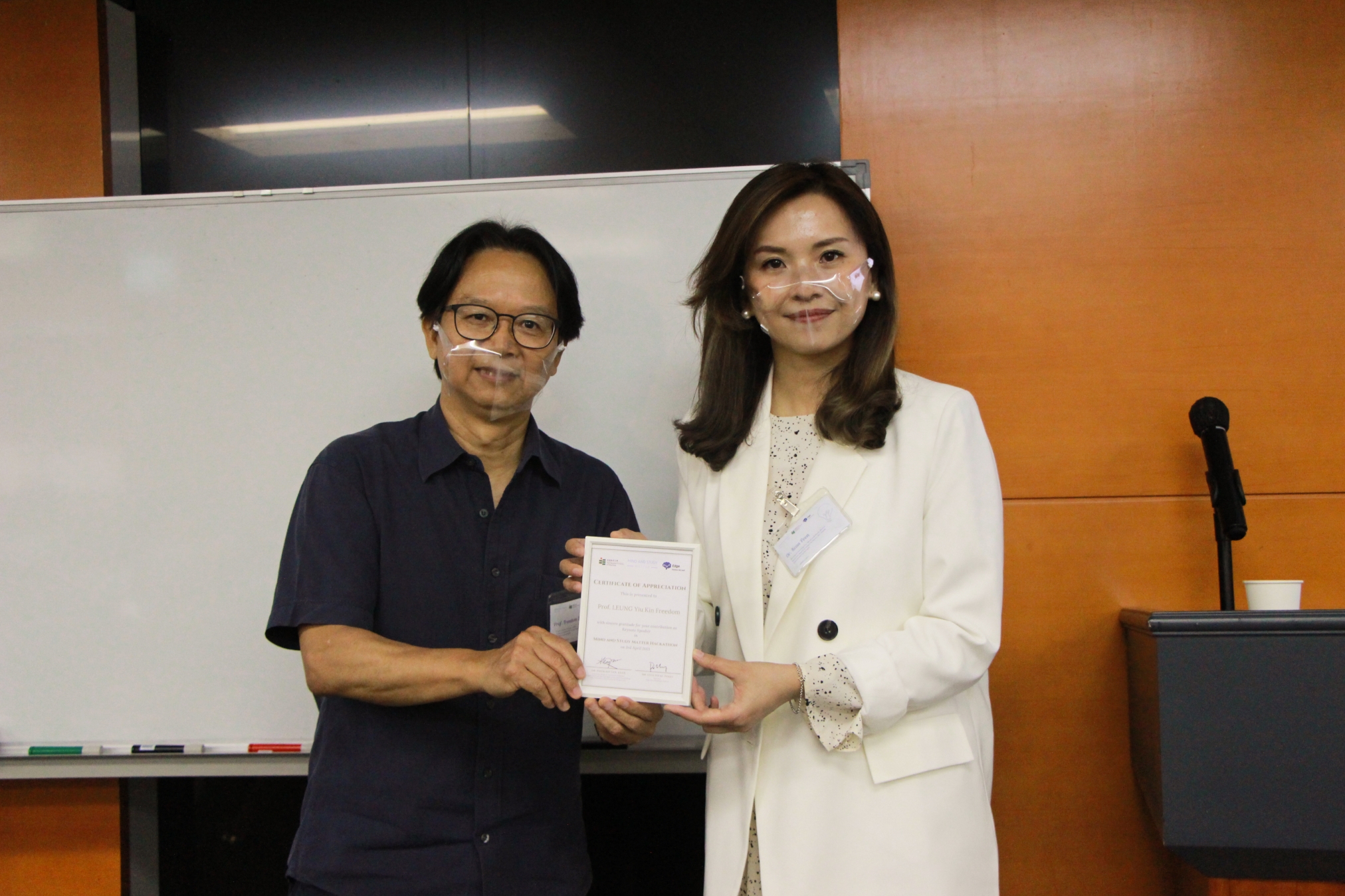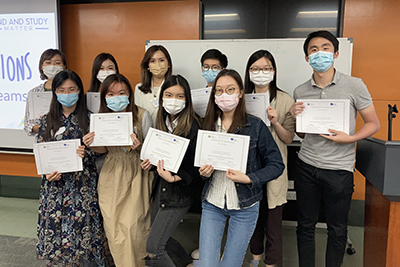The Education University of Hong Kong (EdUHK) and Edge Development Centre, a Hong Kong social enterprise, have co-organised the “Mind and Study Matter” project to improve young people’s mental health. It is an award-winning project of “Mind Matters – A Hackathon for Social Impact”, organised by Asian Charity Services, and sponsored by HSBC Private Banking.
Dr Kean Poon Kei-yan, the project leader and Associate Head of the Department of Special Education and Counselling, said EdUHK launched the “Good Shepherd Project” this academic year with funding from Advance Children Medical and Education Foundation Ltd. The project offers training to university students for providing a tutoring service for primary students with special educational needs. She hoped the “Mind and Study Matter” project would expand the concept of the “Good Shepherd Project” and extend the tutoring service to secondary students with mental health needs. Trained university students and graduates would provide them with tutoring and counselling services, and become their tutors and friends at the same time.
The project held its first public event, “Mind and Study Matter Hackathon” on 3 April 2021. Professor Freedom Leung Yiu-kin, Head of Shaw College at The Chinese University of Hong Kong, psychologists and psychiatrists were invited to participate, and over 80 university students were appointed as mental health ambassadors to promote its importance.
Not only will the project provide support to secondary students with mental health needs, but will also run a series of mental health campaigns in tertiary institutions. “Unlike the previous intervention model led and organised by adults and experts, in this project we encourage young people to design a campaign for their own age group based on their needs, and work under the guidance of mental health experts. I hope this new model relate to the needs of the younger generation,” Dr Poon said in her welcome speech.
During the event, Professor Leung pointed out that, with the advance of science and technology, and although there are many medical treatments to help alleviate the symptoms of depression, it is very common in the younger generation and its prevalence is even rising. “It reflects the notion that perhaps medical treatment can only cure the symptoms of depression, but cannot root out the causes.”
Mr Pokky Choi Poi-ki, Founding Director of Edge Development Centre and Director of the Hong Kong Association of Educational Psychologists, called on the participants to apply their knowledge in this project. He also introduced the PERMA Model of well-being, including “Positive Emotions”, “Engagement”, “Positive Relationships”, “Meaning of Life”, and “Accomplishment”.
Under the guidance of the guests, the participants had 45 minutes to work in groups and think about the mental health problems facing young people today from their perspectives and personal needs. They were asked to then come up with a campaign idea including a detailed plan, timetable, funds and materials needed, to promote mental health in universities. They presented their ideas to guest judges, mental health ambassadors and online audiences. The three winning proposals will be further modified and rolled out in tertiary institutions through the “The Mind Mappers Project” in May.

